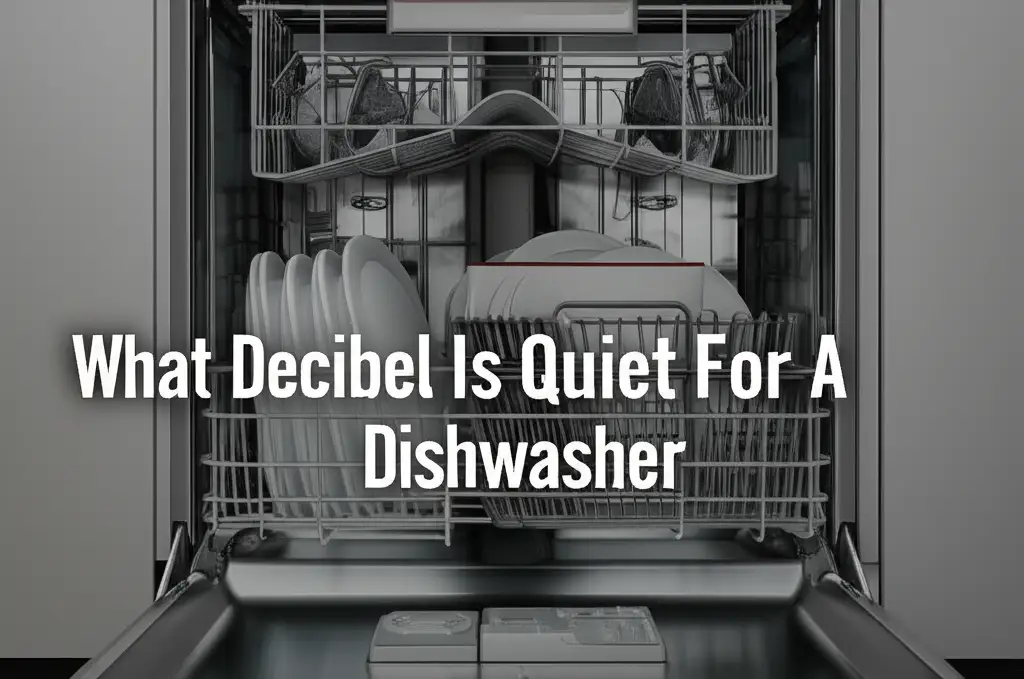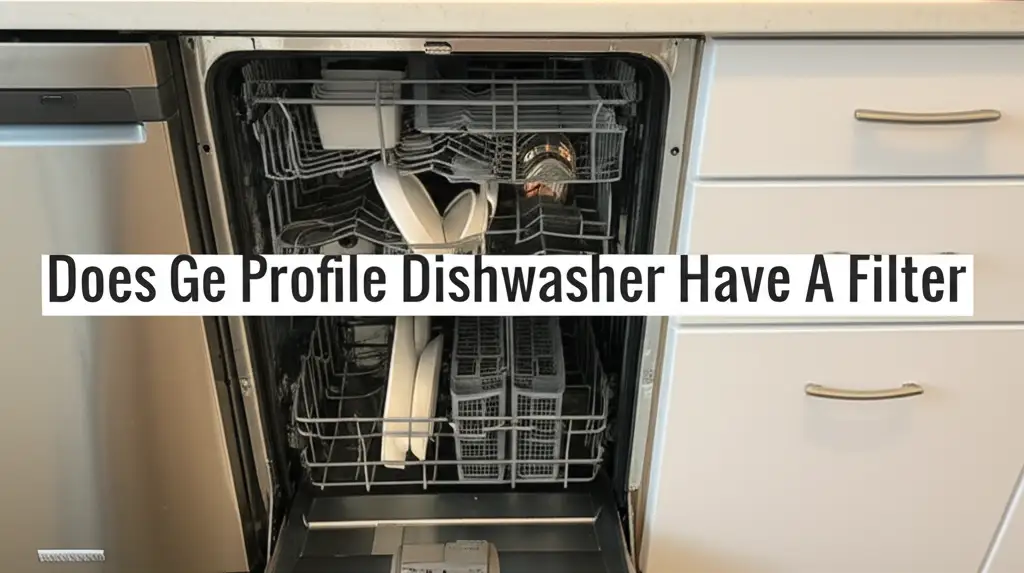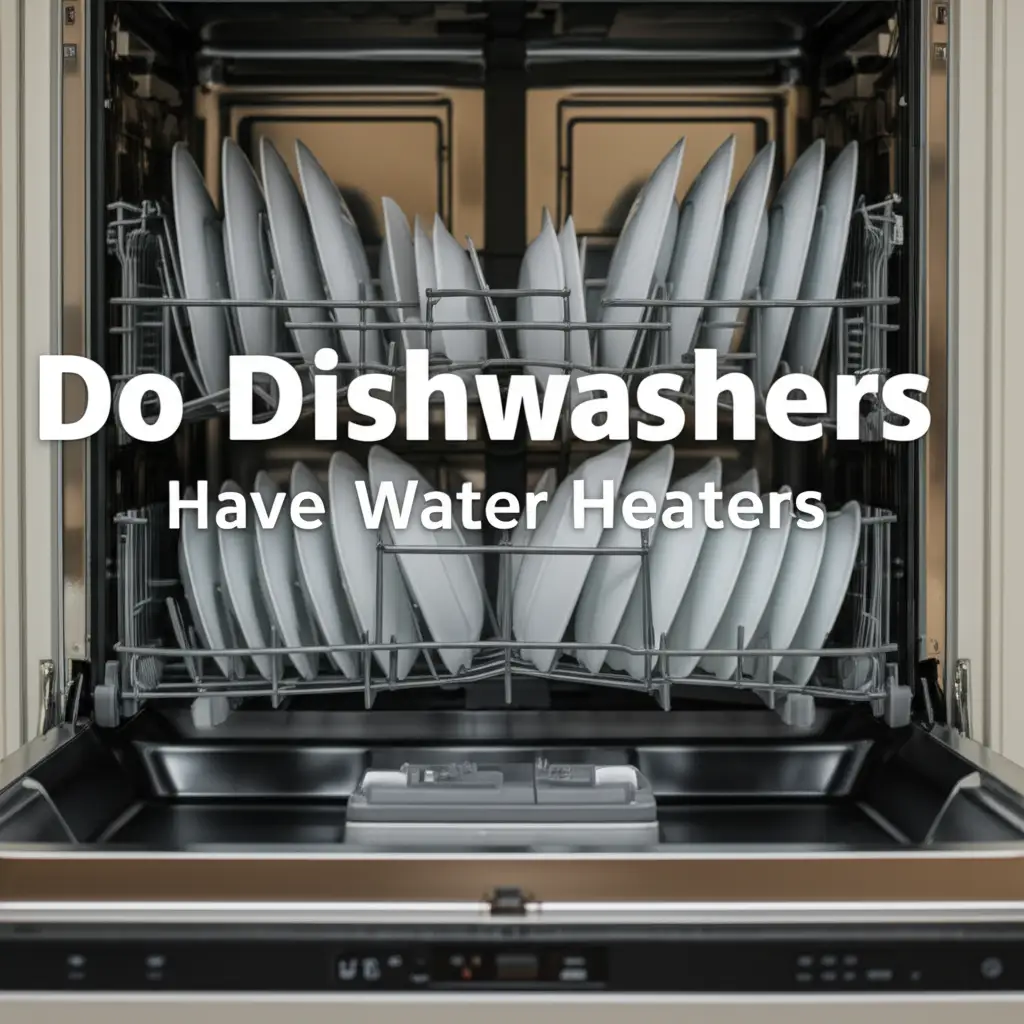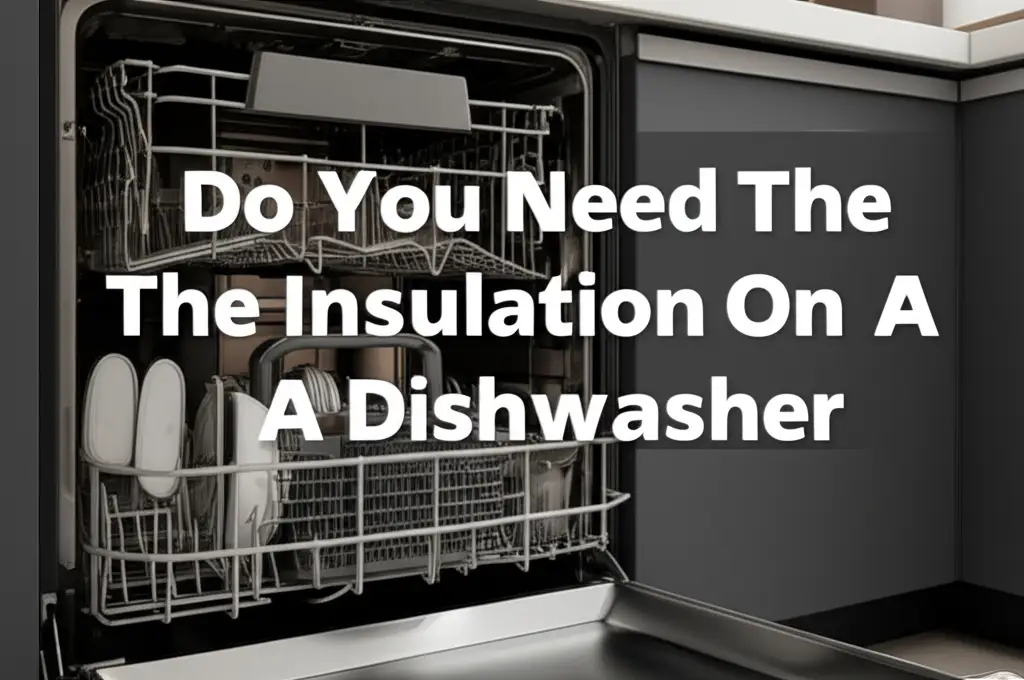· Elira Thomsen · Home Appliances · 14 min read
Are Wolf Ovens Loud
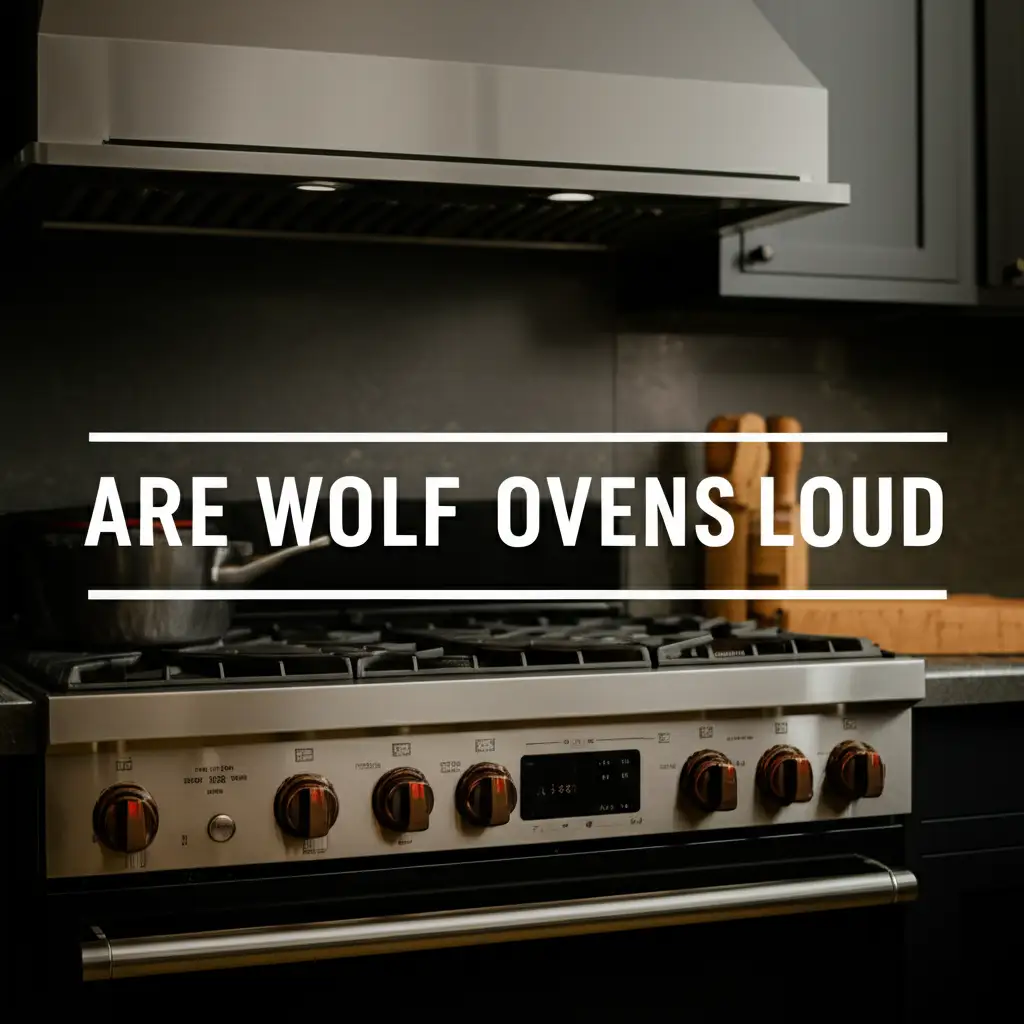
Are Wolf Ovens Loud? Understanding Kitchen Noise
Stepping into a high-end kitchen, you expect quiet elegance. Wolf ovens are a symbol of culinary excellence. Many people wonder, “Are Wolf ovens loud?” This question comes up often. You invest in a premium appliance for its performance and durability. You do not want unexpected noise to disturb your peaceful home. This article will help you understand Wolf oven noise. We will discuss normal operating sounds. We will also cover reasons for unusual noise. Our guide offers practical tips for a quiet kitchen experience.
Takeaway: Understanding Wolf Oven Noise
- Wolf ovens produce some normal sounds during operation.
- Convection fans and cooling systems create most sounds.
- Unusual noises can indicate a problem.
- Proper installation and regular cleaning help reduce noise.
- Most noise issues are fixable with simple steps or professional help.
Wolf ovens generally operate with a moderate level of sound. They are not silent, but their noise levels are typically acceptable for a high-end appliance. Normal sounds include the cooling fan, heating elements expanding, and the convection fan running. These sounds keep the oven working safely and efficiently during and after cooking cycles.
Understanding Normal Wolf Oven Sounds
Wolf ovens use advanced technology. This technology creates certain sounds. These sounds are normal parts of oven operation. It is important to know what sounds to expect. This helps you tell between normal noise and a problem.
The cooling fan is a major source of sound. This fan turns on when the oven heats up. It continues to run after the oven turns off. The fan cools internal components. This prevents overheating and protects the electronics. The sound is usually a steady hum or whir. It can run for a long time, even after you finish cooking. This is a design feature, not a fault.
Another common sound comes from the heating elements. As the oven heats, metal parts expand. You might hear subtle clicking or popping noises. These sounds are normal. They happen when metal expands and contracts with temperature changes. These sounds usually stop once the oven reaches the desired temperature.
Convection ovens have an extra fan. This fan circulates hot air. This ensures even cooking. When the convection fan is on, you will hear its operation. It creates a consistent fan noise. This noise might be slightly louder than the cooling fan. This is because the convection fan moves more air inside the oven cavity. It is an essential part of how convection cooking works.
Sometimes, you might hear a low hum from electrical components. This is also normal. It indicates the oven is receiving power. These sounds are usually subtle. They do not disrupt the kitchen environment. Familiarity with these normal sounds helps you identify unusual ones.
Why Your Wolf Oven Might Be Louder Than Expected
If your Wolf oven seems louder than normal, several factors could be at play. It is important to investigate these causes. Sometimes, a simple fix solves the problem. Other times, it might need professional attention.
One common reason for increased noise is improper installation. An oven must sit level. If the oven is not level, internal parts can vibrate. This vibration causes buzzing or rattling sounds. Check if the oven rocks. Use a level tool to verify its position. Adjusting the leveling legs often solves this issue. Make sure the oven is properly secured in its cabinet opening. Loose fittings can also lead to unwanted noise.
Maintenance also plays a big role. Dust and debris can build up over time. This build-up affects fans. It makes them work harder. This increases fan noise. Dirty fan blades or motors can also cause vibrations. Regular cleaning prevents this build-up. It keeps the fan running smoothly and quietly. Consider checking the oven’s air vents for blockages. Keeping these clear ensures proper airflow and quiet operation. You can learn general principles of keeping things clean around your home by reading articles like how to clean air vents.
Specific models can also have different noise characteristics. Older models might naturally be louder than newer ones. Technology advances. Manufacturers find ways to reduce noise. If your oven is an older model, its sound level might be typical for its age. Some models also have more powerful convection systems. These systems might generate more air movement and associated sound. This is part of their design for superior cooking performance.
Loose components inside the oven can also cause noise. Screws can loosen over time due to vibrations. Internal panels or racks might rattle. Carefully inspect the interior. Check for any loose parts. Tighten screws if you find them. Ensure racks are seated properly. Sometimes, even the sheet metal can expand and contract, causing a “ticking” noise. This is usually normal, but if it becomes excessive, it is worth checking.
Common Noise Sources in Wolf Ovens
Understanding where noises come from helps diagnose issues. Wolf ovens have specific parts that generate sound. Knowing these parts makes troubleshooting easier.
Oven Fans: The most common noise source is the fan system. Wolf ovens have multiple fans. There is a cooling fan. This fan dissipates heat from the control panel and outer casing. It runs during cooking and for a period after the oven is turned off. Then there is the convection fan. This fan circulates hot air inside the oven cavity. It operates only when a convection mode is selected. If either fan becomes unbalanced or dirty, it can produce excessive noise. A failing fan motor can also generate grinding or squealing sounds.
Expanding Metal: As the oven heats up, metal components expand. When it cools down, they contract. This process can create clicking, popping, or creaking sounds. These sounds are usually intermittent. They happen during heating and cooling cycles. They are a natural result of thermal expansion. You should not worry about these sounds. They are normal and expected.
Self-Clean Cycle: The self-clean cycle uses very high temperatures. These extreme temperatures cause significant expansion and contraction of metal. This can lead to louder and more frequent popping or cracking noises than during normal cooking. This is completely normal for a self-clean cycle. The high heat also makes the cooling fan run at its highest speed. This increases fan noise. Ensure the oven is empty before running this cycle. Loose items can rattle around.
Rattling Oven Racks or Trays: Sometimes, the simplest explanation is the right one. If your oven racks are not seated correctly, they can vibrate. This creates rattling sounds. Make sure all racks are pushed in fully. If you have any baking trays or pans inside, remove them. Test the oven again. You might find this simple check solves a seemingly complex noise issue.
Loose Screws or Panels: Over time, screws holding internal or external panels can loosen. Vibrations from fans or cooking can make them rattle. Carefully inspect visible screws. Gently tighten any that seem loose. Do not overtighten. This can damage the oven. If a panel appears loose, check its fasteners. Sometimes, professional service is needed for internal panel access.
Troubleshooting Wolf Oven Noise
When your Wolf oven makes unusual noises, troubleshooting can help. Many issues have simple solutions. Start with these checks before calling for service.
First, identify the type of noise. Is it a hum, rattle, click, or grind? This helps narrow down the problem. A hum often points to a fan. A rattle suggests loose parts. Clicking is usually normal expansion, but constant clicking might indicate an issue. Grinding or squealing noises usually mean a failing motor or bearing.
Next, unplug the oven from power. Wait a few minutes. Then plug it back in. This can sometimes reset the electronics. It might clear temporary glitches that cause noise. This is like restarting a computer. It can fix minor software or sensor issues.
Check the oven’s leveling. Use a spirit level on the oven top. If it is not level, adjust the leveling legs at the bottom. Turn the legs clockwise to raise and counter-clockwise to lower. An unlevel oven can cause vibrations. These vibrations create buzzing or rattling sounds. Ensure all four legs make firm contact with the floor.
Inspect the oven interior. Look for anything loose. Check the oven racks. Make sure they are fully pushed in. Remove any baking sheets or pans. Run the oven empty. This helps determine if the noise comes from the oven itself or items inside. Clean the oven cavity thoroughly. Sometimes food debris can interfere with fan blades or other components. Regular cleaning of your appliances is important, much like keeping other areas of your home clean, such as knowing how to clean the refrigerator.
Listen to the fans. Open the oven door after the oven cools. Visually check the convection fan. Spin it gently by hand. It should spin freely. If it wobbles or rubs, there might be a problem. For the cooling fan, you might need to listen from the back or bottom of the oven. If a fan makes excessive noise, it might need cleaning or replacement. Dust and grease can build up on fan blades. This causes imbalance and noise.
If you suspect a component is loose, gently press on panels. See if the noise changes or stops. This can pinpoint the exact location of a rattling part. If the noise persists after these steps, it might be time for professional service. Wolf appliances are complex. Specialized tools and knowledge might be needed for repairs.
Maintaining Your Wolf Oven for Quieter Operation
Regular maintenance is key to keeping your Wolf oven quiet. A well-maintained oven runs more efficiently. It also makes less noise. Simple steps can prevent many common sound issues.
Regular Cleaning: Clean your oven regularly. Food spills and grease can build up. This grime can get into the fan assembly. It can coat the fan blades. Dirty fan blades become unbalanced. They produce more noise. Wipe down the interior after each use. A deep clean every few months helps. For specific instructions on cleaning different surfaces, you might find general cleaning guides useful, such as tips for maintaining various household items like learning how to clean rubber bath mat. This attention to cleanliness helps prevent issues.
Clear Air Vents: Wolf ovens have air vents. These vents allow for proper airflow. This airflow cools the internal components. Blocked vents can restrict airflow. This makes the cooling fan work harder. It causes more noise. Regularly check the vents around and behind the oven. Remove any dust or debris. Vacuuming around the oven can help keep vents clear. Good ventilation is crucial for quiet operation.
Check Door Seals: The oven door seal, or gasket, keeps heat inside. A damaged or worn seal can lead to heat leakage. This makes the oven work harder to maintain temperature. The fans might run more often or at higher speeds. This increases noise. Inspect the door seal regularly. Look for cracks, tears, or hardening. Replace a damaged seal promptly. This improves efficiency and reduces fan activity.
Inspect Racks and Accessories: Before cooking, ensure oven racks are properly seated. Loose racks can vibrate and rattle during operation. Remove any unused accessories. Things like broiler pans or baking stones can also vibrate if not secure. Keeping the oven cavity clear of loose items helps reduce noise.
Professional Servicing: Consider professional servicing every few years. A certified technician can inspect internal components. They can clean hard-to-reach areas. They can also tighten any loose fasteners. They might also lubricate moving parts if needed. This preventative maintenance can extend your oven’s life. It also ensures quiet and efficient operation. This is especially true for complex appliances like Wolf ovens.
Comparing Wolf Oven Noise to Other Brands
When you consider a high-end appliance like a Wolf oven, noise level is a valid concern. How do Wolf ovens compare to other brands? Understanding industry standards and Wolf’s unique characteristics helps set expectations.
Wolf ovens are premium appliances. They are built for performance and durability. This means they often feature powerful cooling and convection systems. These systems are essential for precise cooking. They naturally generate some sound. Compared to basic, entry-level ovens, a Wolf oven might not always be “quieter” in absolute terms. Basic ovens might lack powerful fans. However, Wolf’s noise is usually a consistent, well-engineered hum. It is less likely to be an irritating rattle or grind.
Many high-end brands focus on noise reduction. They use insulated panels and quiet fan motors. Wolf incorporates these features. However, their emphasis is on cooking performance first. The sound generated is a byproduct of that performance. For instance, the powerful convection fan ensures even baking and roasting. This fan will create a noticeable airflow sound. It is a sign the oven is doing its job effectively.
Some luxury brands specifically market “silent” or “near-silent” operation. These models might use advanced insulation and specific fan designs to minimize decibels. Wolf’s philosophy balances this with raw cooking power. You pay for precise temperature control and robust construction. The sound produced often reflects the significant heat management required for their performance.
User reviews often highlight the “normal” fan noise of Wolf ovens. Owners generally find it acceptable. They understand it is part of the appliance’s operation. The sound is typically described as a steady hum. It is not usually an intrusive or disruptive noise. When a Wolf oven does make unusual noise, it often signals a need for troubleshooting or maintenance. Other brands might have different sound profiles. Some might be quieter overall, but perhaps with less powerful features. It is a trade-off between absolute silence and high-level cooking performance.
Ultimately, Wolf ovens are not designed to be completely silent. They are designed for superior cooking. The sounds they make are largely functional. They signify the oven is working hard to give you perfect results. Expect some operational noise. Recognize that it is often a sign of quality and power.
FAQ Section
Q1: Is it normal for my Wolf oven fan to run for a long time after cooking? Yes, it is completely normal. Wolf ovens have powerful cooling fans. These fans remove heat from the oven’s internal components and control panel. This process protects the electronics from overheating. The fan can run for an hour or more after you turn off the oven. This ensures proper cool down.
Q2: Why does my Wolf oven make clicking or popping noises? Clicking or popping sounds are normal. They happen because of thermal expansion. As the metal parts inside the oven heat up, they expand. When they cool down, they contract. This movement causes these sounds. These noises are most common during heating and cooling cycles.
Q3: Can a dirty Wolf oven cause it to be louder? Yes, a dirty oven can become louder. Grease and food debris can build up on the fan blades. This makes the fan unbalanced. An unbalanced fan generates more noise. Regular cleaning, especially around the fan area, helps maintain quiet operation. Keeping the oven clean improves performance.
Q4: What should I do if my Wolf oven is making a grinding or squealing noise? A grinding or squealing noise suggests a mechanical problem. This often points to a failing fan motor or bearing. If you hear these sounds, stop using the oven. Unplug it if possible. You should contact Wolf customer service or a certified appliance technician. This type of noise usually requires professional repair.
Q5: Is fan noise during the self-clean cycle normal for a Wolf oven? Yes, increased fan noise during the self-clean cycle is normal. The self-clean cycle uses very high temperatures. This extreme heat makes the cooling fan work at its highest speed. It must dissipate a lot of heat. You will also hear more popping and cracking sounds from metal expansion.
Q6: Does a new Wolf oven make noise during its first use? Yes, it is common for a new Wolf oven to make some noise during its first few uses. This can include “burn-off” smells and associated fan noise. The components are new and settling in. Any initial unusual noises should lessen over time. If they persist, consult the owner’s manual or Wolf support.
Conclusion
So, are Wolf ovens loud? The answer is nuanced. Wolf ovens produce sounds during operation. These sounds are largely normal and functional. They ensure the oven performs at its best. Expect to hear cooling fans, convection fans, and the natural expansion and contraction of metal. These noises are part of owning a high-performance appliance.
However, unusual or excessive noise can signal a problem. Improper installation, lack of maintenance, or failing components can increase sound levels. Most of these issues are solvable. Simple steps like leveling the oven, cleaning regularly, and checking for loose parts often make a big difference. Remember, regular care helps your oven run quietly and efficiently for years. If a grinding or squealing sound occurs, it is time for professional help. Trust in Wolf’s engineering. Enjoy your quiet, high-performing kitchen with your exceptional oven.


